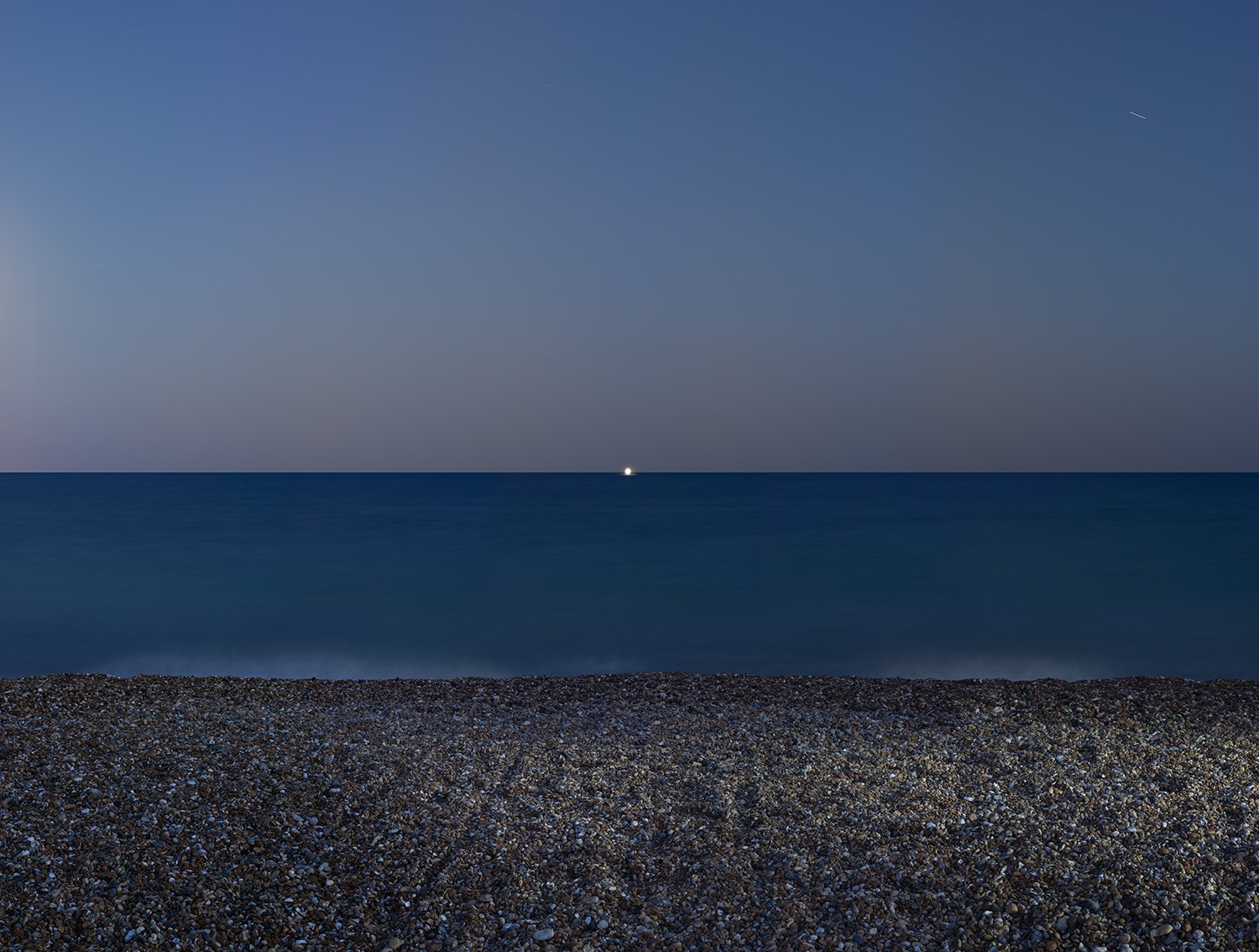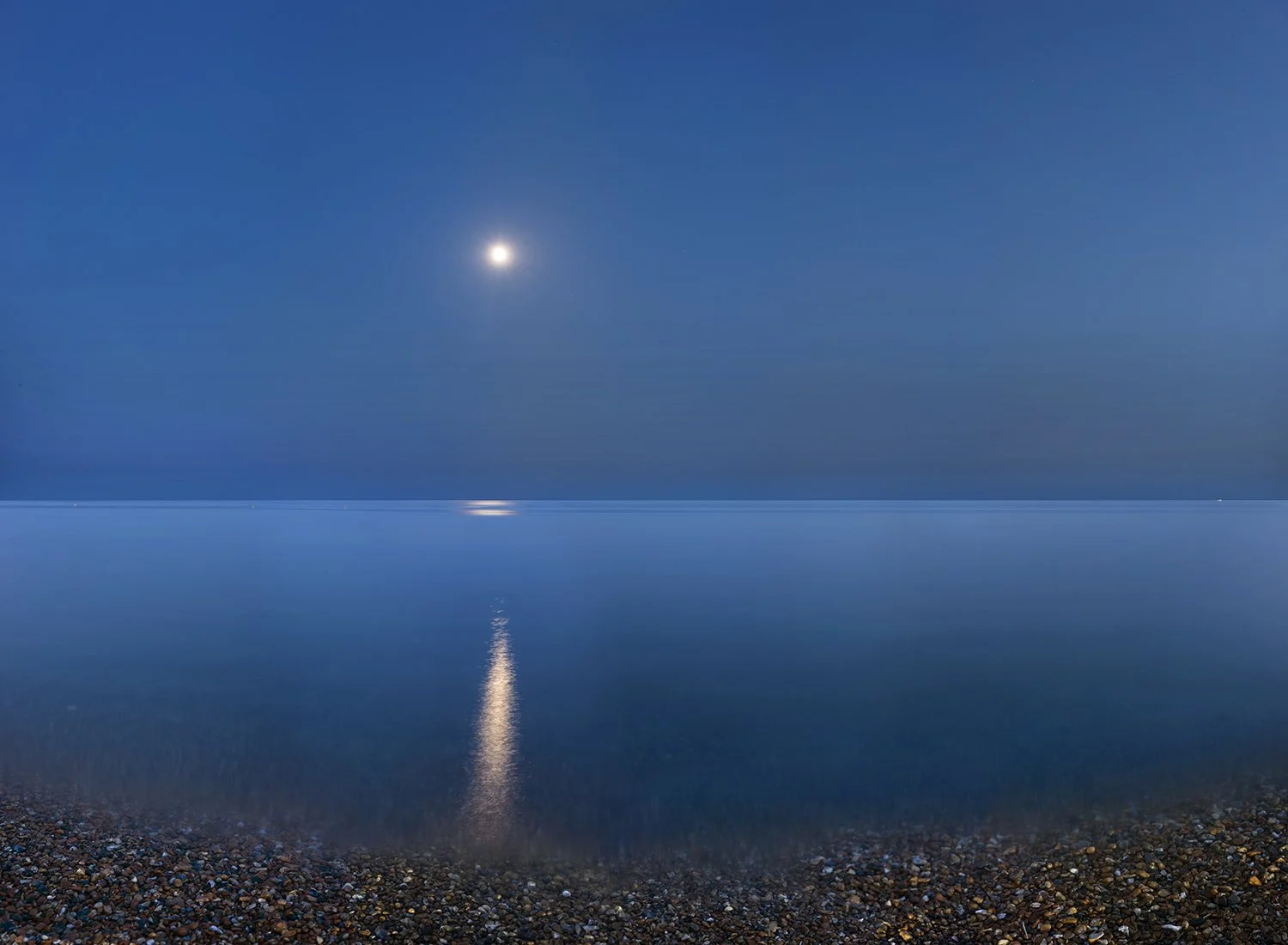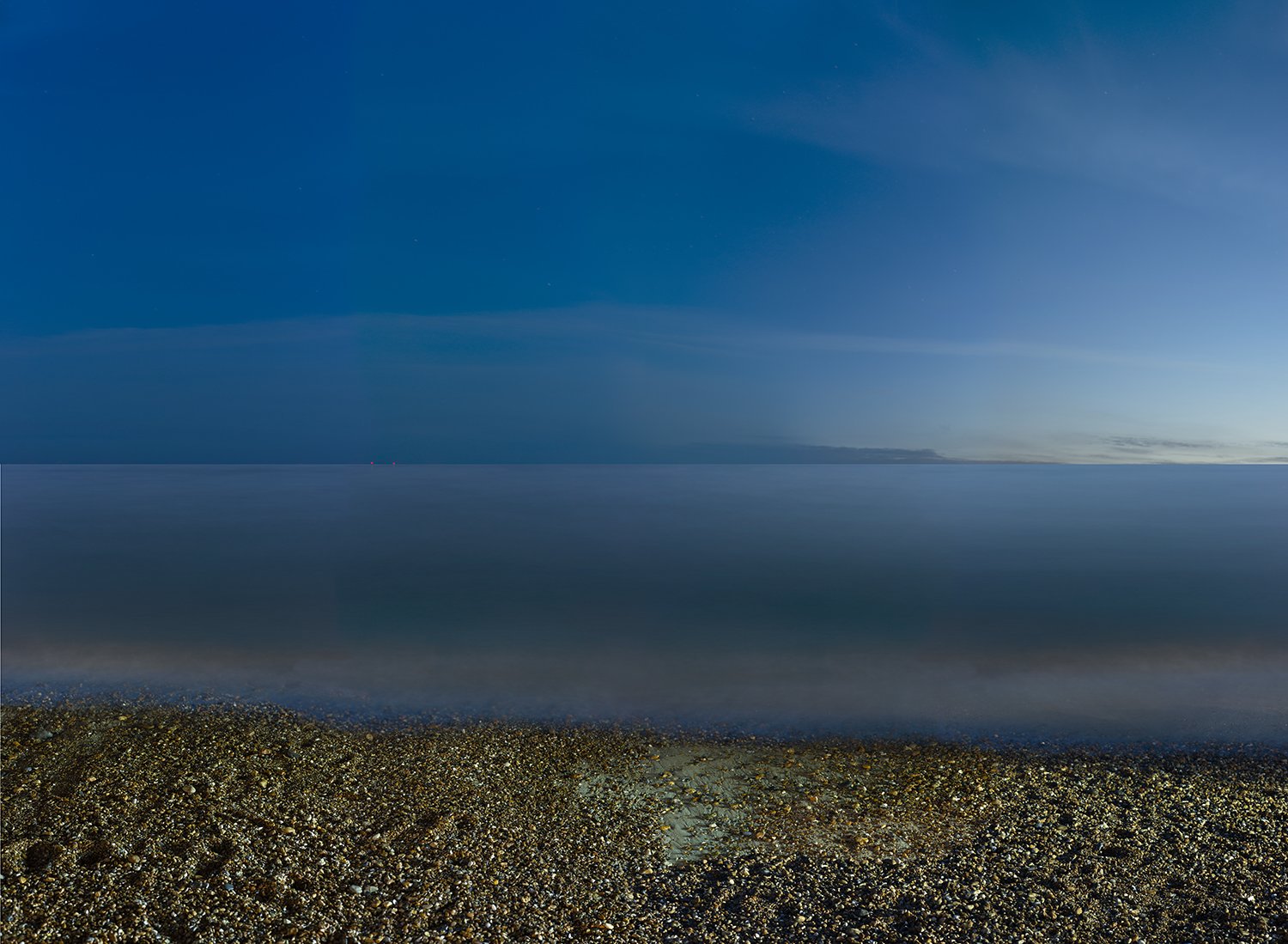Impossible Utopia
Indian Summer Memories, 2023
artwork size: 180 x 120 cm
Hove Beach,2016
artwork size: 167 x 120 cm
Moonlight with Rain, 2024
artwork size: 174 x 120 cm
Tale of Two Moons, 2025
artwork size: 174 x 120 cm
Study One, 2016
artwork size: 167 x 120 cm
“Big, Bold & Beautiful” group show, 2019 - Holden Luntz Gallery, Palm beach
Impossible Utopia
Throughout history, people have designed utopias, perfect worlds that aren’t exactly real and yet that can serve to illuminate real needs. Contemplating utopias restores and reinvigorates us by helping us to focus on the what things could, and might, one day be like.
In the summer of 2016, a few days after the controversial Brexit referendum result was announced, I decided to create a new body of work reflecting on the UK’s south east border, a vast space of water called the English Channel. The referendum was questionable with more than 3 million European residents in the UK - including myself - denied the right to vote and I wanted to find a way to address the significance of the vote in a wide context.
My intention was to use the moonlight, the stars and the sea that separates Great Britain from the rest of Europe to create large scale symbolic pieces that would provoke debate on contemporary issues such as migration, the future of our planet, the power of politics and the implications of the Brexit vote on all Europeans living in the UK.
The project was my way to try to process and convert something, which, in my view, was negative into a positive experience. In historical terms, our ancestors used the stars and moon as navigation tools to guide them through the night on their long voyages. My own grandparents crossed the Atlantic in old style ships over 100 years ago, from Germany & Austria to South America, looking for a new life.
We “humans” do not seem to realize how lucky we are to live in such an abundant and perfect planet. Earth is just the right distance from the sun (not too hot and not too cold) and with a Moon near by to help make it a more liveable place. The Moon helps moderating our planet's wobble on its axis, leading to a relatively stable climate and generating tides, creating a rhythm that has helped nature and guided humans for thousands of years.
Our planet has plenty of water, with oceans covering around 70 percent of the Earth's surface, transporting heat from the equator to the poles, regulating our climate and weather patterns. The ocean also produces over half of the world's oxygen and absorbs 50 times more carbon dioxide than our atmosphere. However we seem to have lost touch with that natural rhythm provided by nature and seem to be heading towards a more destructive existence. Power, greed, inequality and division seem to be the new global trend, rather than the awareness and changes of attitude we need to carry us towards a more sustainable and kinder existence.
Since 2016, I made it my personal mission to go out and meditate by the sea (on full moon nights) and reflect under the stars. Each seascape in this series is captured over several continuous photographs in the space of over one hour in time. The scene is photographed in small detail using a sort of mental grid. It’s a methodical process which allows me to slow down, to reflect, to adjust my focus in the dark and gently absorb the landscape in a meditative way. I wanted to create large-scale representations of the border that recorded and evoked more than could be achieved by a single photograph - impossible representations in fact.
The project is poetical, methodical and inquisitive in nature. It plays with a fragmnented passage of time, it explores a form of representation that flirts between photography and painting. It depicts beautiful seascapes rich in texture and painterly details yet with a nostalgic feel - surreal oceanic scenes that could hold thousands of memories of untold stories.
My aim as an artist is to offer the viewer a calming canvas for reflection. A moment of pause to hopefully inspire and entice debate on important current issues, such as global warming, the oceans, migration, borders, inclusion and sustainability. In my view, everything is connected. The project also hopes to inspire a new relationship with the planet, to promote a more humble view of our world that engenders a caring response to all species and the environment, whilst moving away from the dangerous idea of human exceptionalism.
Pebbles Study 1 (White Light), 2021
artwork size: 159 x 120 cm
Mirrored Illusion, 2021
artwork size: 164 x 120 cm
Picturing Xanadu, Holden Luntz Gallery, 2023
Curved Beach, 2021
artwork size: 167 x 120 cm
Tidal Flow, 2022
artwork size: 179 x 120 cm
Twilight, 2021
artwork size: 164 x 120 cm
Floating Light, 2021
artwork size: 177 x 120 cm
Madeira Drive, 2017
artwork size: 179 x 139 cm
Peacehaven, 2017
artwork size: 200 x 146 cm
Mostra de Acervo, 2019 - Galeria Bolsa de Arte.
Rocky Beach, 2016
artwork size: 179 x 120 cm
Sackville beach, 2019
artwork size: 166.5 x 120 cm
Balcombe Cliffs, 2020
artwork size: 155 x 120 cm
Kingsway, 2017
artwork size: 155 x 120 cm




















